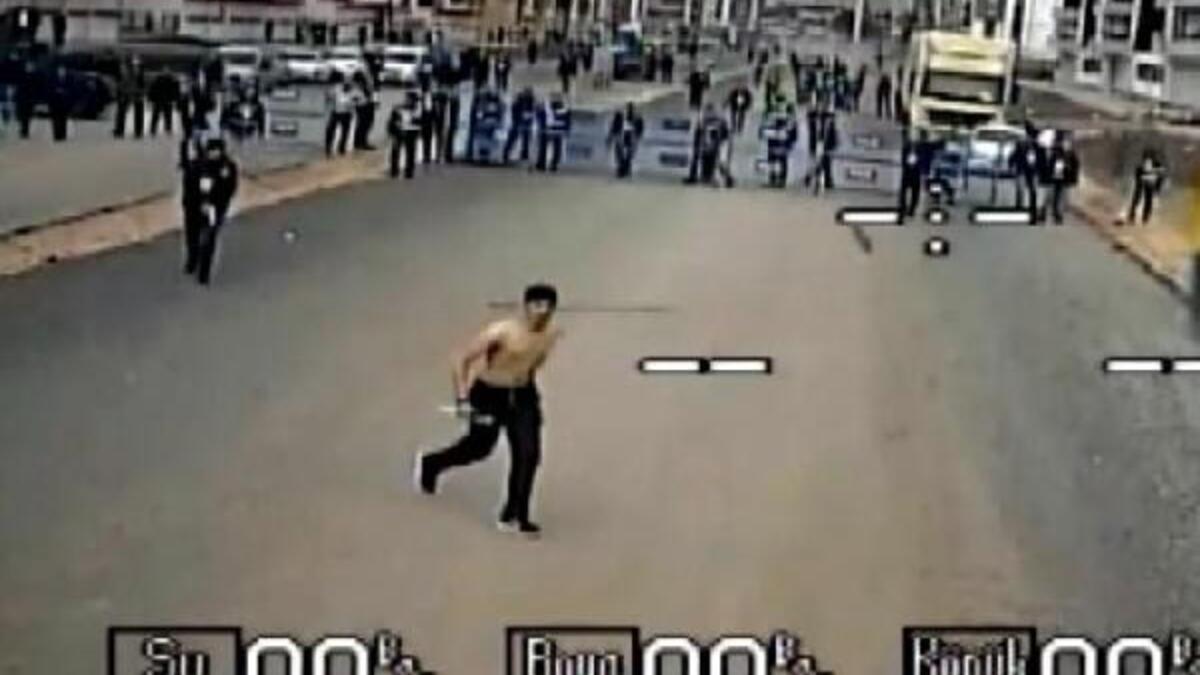Turkey has a disturbing history of cracking down on press freedom – now it’s worse than ever
Photographer Abdurrahman Gok is being prosecuted on a charge of membership of a terrorist organisation and spreading terrorist propaganda, writes Borzou Daragahi


It is a shocking photograph, capturing the moment when a young Turkish man named Kemal Kurkut was shot dead by security forces at a checkpoint in the eastern city of Diyarbakir on 21 March 2017.
The photographer, Abdurrahman Gok, would be lauded for capturing this incredibly disturbing moment. The agonising picture of the apparently unarmed man being shot from behind led to the prosecution of two police officers and depicted the kind of abuse by Turkish law enforcement that has led to calls around the world for reform and accountability.
Instead, the two police officers were acquitted. And it’s Gok who is being prosecuted on a charge of membership of a terrorist organisation and spreading terrorist propaganda. The preliminary hearing was held last Tuesday at a court in Diyarbakir, and the trial will resume in June.
- Fotoğrafı çekenin 20 yıl hapsi istendi
— Bülent Mumay (@bulentmumay) November 17, 2020
- Tetiği çeken polise ise beraat verildi.#DemokrasiŞöleni #KemalKurkut pic.twitter.com/X4lkkEkXdk
The case against Gok has raised concerns among Turkish and international press freedom advocates. While the photograph may not be the direct cause of his prosecution, it was the attention the widely distributed picture brought that put him under the scrutiny of security forces. He was briefly detained in 2018, when his mobile phone was seized, and was charged last October, based on secret testimony from an unnamed informant, according to press freedom advocates.
Gok has had previous run-ins with the law, and has reported on the fight for Kurdish political rights, a sensitive topic for Turkish authorities. But the situation for many journalists in Turkey remains dire. This week, dozens of journalists in Turkey face court dates, with some facing national security charges. Among the cases is the so-called “Bloomberg” trial, in which almost 40 financial journalists and media employees are being prosecuted over coverage of the country’s currency crisis in 2018.
In other cases, journalists are facing jail time for social media posts deemed “insulting” to the country’s leadership, or for reporting on police violence. The targets of the prosecution are almost all journalists and news outlets that fail to toe the government line. The court cases have become a government tool to intimidate media in a way that is more blatant than perhaps at any other time in Turkey’s disturbed history of press freedoms.
It’s important for Turkish authorities to remember that by keeping tabs on public officials and security forces, reporters curb their worst excesses and tendency toward corruption. Journalism is a crucial pillar of civil society, and not criminal activity.
Yours,
Borzou Daragahi
International correspondent
Join our commenting forum
Join thought-provoking conversations, follow other Independent readers and see their replies
Comments


Bookmark popover
Removed from bookmarks